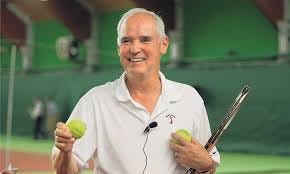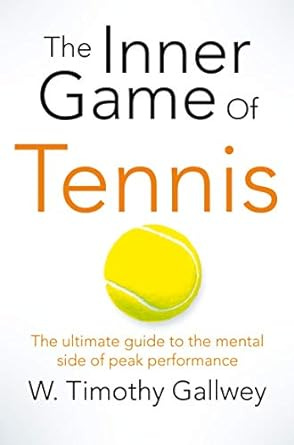“Fortunately, most children learn to walk before they can be told how to by their parents.”
I was in high school when I discovered that I was not the only sentient resident of my body. A heavy bottle of shampoo slipped from my hands in the shower and my toes, before I had even managed to curse, lifted off the floor and held themselves tensely aloft, bracing for impact. How had they known to do that? What mysterious intelligence — aware, as I certainly wasn’t, that getting away from the tile would spare me (them?) some pain — was operating here?
The subsequent decades of my life have, among other things, been dedicated to handing more and more of my life over to this strange being. This thing, whatever it is, has, of course, always been in charge of the workings of my organs, not all of which I would know if they appeared glistening on my desk. But I’ve come to believe that it also knows better than I do how to swim, how to play music, even how to write. I — who spent years in school, who read difficult books for pleasure — have become something like a junior partner, really more of an intern, in the corporation of my body.
Or maybe better to say: I have only lately realized that I have always been an intern. And that the toe-lifting entity, who doesn’t know his name or even if he has one, is and always has been the CEO.
There are countless books about all this. There’s Iain McGilchrist’s The Matter with Things (two citation-rich volumes, each one as thick as a yoga-brick) if you want to understand the neurological underpinnings of the divided self. There’s Eckhart Tolle’s The Power of Now, if you want a slightly wooly account of how this you-who-isn’t-you operates. There’s the great Borges story “Borges and I,” if you want to give yourself (either one of them) a little shiver of recognition. But if you want actually to make use of your latent capacities — to harness the best of what your bafflingly publicity-averse CEO has to offer — there is W. Timothy Gallwey’s The Inner Game of Tennis.
This is not, I should say right off the bat, a book only for tennis players. There are no diagrams, and very little talk of serves or volleys or proper backhand form. But neither is it quite one of those Zen-and-the-art-of-fill-in-your-hobby books that is merely a self-help manual in a specialist’s disguise. Gallwey does actually want to improve your tennis game (I now focus obsessively on the seams of the ball; I grip the racket as if it were a bird) but he just happens to be so wise and clear and practical that he can’t help improving your life while he’s at it.
The Inner Game is explicitly about the intern/CEO divide — Gallwey calls them Self 1 and Self 2 — and the genius of the book is in the subtlety of its understanding of the intern’s psychology: his delusions of grandeur, his desperation for credit, his terror of losing control. Because Gallwey knows that something has gone very wrong in the inner corporation — the intern has shoved the CEO in a closet and wired the whole place with explosives. The Inner Game (written in the calm, respectful voice of a seasoned FBI negotiator) could be thought of as a long message to the intern, a gentle plea for him to step away from the detonator.
Trusting your body in tennis means letting your body hit the ball… Letting it happen is not making it happen. It is not trying hard. It is not controlling your shots. These are all the actions of Self 1, which takes things into its own hands because is mistrusts Self 2. This is what produces tight muscles, rigid swings, awkward movements, gritted teeth and tense cheek muscles.
My favorite of Gallwey’s techniques for getting through to Self 1 (the technique that, whenever I read it, causes me to put up my hands and walk blinking out into the courtyard where the FBI agent’s firm embrace awaits) is to invoke childhood. Because each one of us, Gallwey reminds us, has already operated in a corporation without an intern. It was when we did our best work.
Fortunately, most children learn to walk before they can be told how to by their parents.
I love the suppressed smile within that fortunately. I love the relaxedness of the tone. I love the image of parents desperate to burst into the nursery with instructional charts. And I love that Gallwey sees, and isn’t afraid in a book about sports to address, the continuity between that which we do on the play-mat and that which we do on the court.
Could there be a clearer demonstration of the non-necessity of the controlling-self than a baby learning to walk? The one-year-old, without a single lesson or correction, decides to risk his bodily well-being — he takes falls that would leave an adult on the couch for weeks — in pursuit of a goal not much less ambitious than a trip to Mars. Without a shred of evidence that he will be capable of it, without even the sketchiest of plans, he sets out to change his means of locomotion entirely — and, in less time than it takes an adult to learn which light-switch controls the living room, he does it.
The memory of this — the knowledge that that baby, like Duke and Allie at the end The Notebook, was us — is both stirring and crushing. We were once capable of astonishing developmental leaps, and the visionary who led us through them works within us still. His seat at the head of the table (why yes that does happen to be where you’re sitting, apologies) awaits.




I love this! My first big experience of Self 2, was (of course) pregnancy. I was pregnant and 21, and quite the intellectual. Realizing that Self 1 was actually constructing a human body totally without input from what I thought of as ME, was a revelation. I'm certainly ordering this book right away.
Fascinating. I had a little bit of this when my daughter took Suzuki guitar lessons, which meant that I too had Suzuki guitar lessons. I couldn't read music and I had never learned to play an instrument but I had taken dance (ballet, en pointe, tap and jazz) lessons. But when dancing, all body parts are pretty much on the same page and the arms support what the legs are doing and don't do anything complicated. I was skeptical that each of my hands could do something different, at the same time, and I had never learned about muscle memory. I had to trust the teacher and stop trying to analyze what I was doing and just do it. I did learn a lot and I certainly enjoyed it.